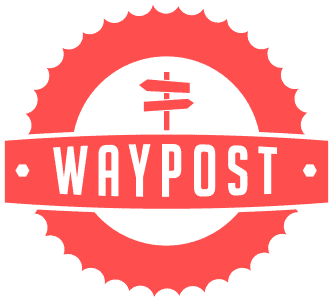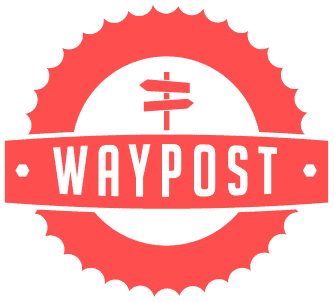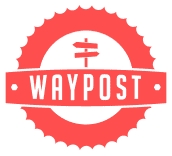
What is the HubSpot deal pipeline? Benefits and Best Practices
August 23, 2022
5 HubSpot Sales Reports We Recommend for Every Client
September 9, 2022Should your next web design use Wordpress or HubSpot CMS?
It’s been a few years since HubSpot introduced its own CMS for developing fully-functioning websites on its growing Marketing, Sales, and Service platform. At first, there weren’t many compelling reasons to build your business’ website on HubSpot. The CMS lacked basic features and functionality that even smaller websites would need.
But now, years later, HubSpot has a product that compares to one of the best CMS options on the web – WordPress. It’s a compliment to the developers at HubSpot that HubSpot CMS is garnering this comparison.
Are WordPress and HubSpot CMS even in the same category?
As a long-time web developer, I believe HubSpot may still be a few years away from giving us a product that can truly compare with WordPress.
In the broadest sense, these two products are a part of the same CMS category. However, HubSpot CMS is still a niche product – deriving most (if not all) of its value proposition from the other tools in the HubSpot ecosystem. In short, if you weren’t planning on using HubSpot’s other marketing or sales tools, there’s no compelling reason why you might choose to build a website on HubSpot CMS.
For this reason, a feature comparison is not ideal for measuring these two platforms against each other.
WordPress and HubSpot are ecosystems.
These platforms both benefit from massive ecosystems that add value and make them work for any number of unique use cases. To make a fair comparison, you have to consider the value and capability of each ecosystem as a whole.
Pro HubSpot CMS comparisons usually reduce WordPress to its core capabilities and criticize the need for “expensive” plugins (a.k.a. Hidden costs) to extend the platform’s functionality.
Pro WordPress comparisons overlook the powerful marketing and sales automation tools that make it possible to create intelligent, dynamic websites with HubSpot CMS.
Everyone wants to compare their ecosystem with the other’s lowest common denominator.
The elephant in the room is that these two powerhouse ecosystems complement each other nicely. There’s no reason to think you can’t have the best of both worlds.
How are WordPress and HubSpot CMS the same?
HubSpot CMS is the same as WordPress in the most obvious technical respects. It’s a little silly to think that these two cutting-edge tech companies aren’t offering you the best possible performance regarding security, SEO, or usability.
When we consider the cost of each, the solution that works best for your needs will probably cost about the same whether you choose to use WordPress, HubSpot, or a combination of both.
1. Security
Both WordPress and HubSpot CMS are very secure. Our managed WordPress hosting includes all the same security features that HubSpot CMS offers, including a Web Application Firewall (WAF), SSL, and 24/7 threat detection.
2. SEO
Both platforms offer extensive SEO implementation and monitoring tools. HubSpot’s feature set is native, while WordPress uses plugins like Yoast SEO or Jetpack. The fact that you’re extending WordPress doesn’t prove the superiority of HubSpot. We’re comparing ecosystems, not core products.
3. Ease of Use
Both platforms are easy to use. If you’re already familiar with one, you may experience a learning curve with the other. Still, neither platform requires development experience to create or maintain content.
4. Cost
The cost to develop a website on either platform is comparable, though you’ll probably have more options with WordPress. WordPress boasts a massive offering of free and premium themes, plugins, and add-ons that make it easy to build a unique website without ever seeing a line of code. If you do want a professional designer or developer, you’ll find a much deeper pool of talent who work with WordPress.
The cost to maintain a HubSpot website is simply the cost of your one monthly subscription (plus any integrated subscriptions you may use). Maintaining a WordPress website usually has more line items, but the bottom line is comparable. 95% of our managed WordPress hosting plans cost less than $3000/year, including premium plugins, managed updates, all security features, and tech support. (HubSpot grossly overestimates that the cost to operate a WordPress website for one year is $5451 – $82,558, based on hosting costs and premium plugin expenses that you should not reasonably expect to have).
How are WordPress and HubSpot CMS different?
It’s not very exciting to discuss the sameness of the two products, but we needed to clear the air. Let’s focus on how these two ecosystems are different so that we can determine which is right for your business.
There are a few things that make each of these ecosystems shine in comparison to one another. WordPress is excellent at eCommerce. HubSpot has a killer way of handling smart content and marketing automation. Let’s consider the significant differences:
1. Data Access & Ownership
Both platforms allow you to export data and access the content you create, but only WordPress lets you pick up your whole website and plop it down somewhere else. Don’t like your marketing agency? Take your website with you when you go.
Data ownership also matters because you may not be 100% committed to the complete HubSpot ecosystem. Thinking about making a significant investment in a new HubSpot CMS website can be overwhelming if you’re only experimenting with HubSpot’s other tools. As I mentioned at the beginning of this article, HubSpot CMS looks less compelling when standing alone.
A lack of long-term commitment would be an excellent reason to choose WordPress for your website platform.
2. Marketing & Sales Automation
HubSpot CMS’s seamless integration with the other Hubs in its suite of tools allows users to do some powerful marketing and sales magic. It’s not impossible to implement A/B testing, attribution reporting, or dynamic smart content on the WordPress platform. Still, it all comes naturally with HubSpot CMS.
The marketing and sales features that come with HubSpot CMS are downright impressive. If your business regularly uses and depends on these features, it’s worth considering the HubSpot CMS platform.
3. eCommerce
There’s not a lot to say here. WordPress (and WooCommerce) offer far superior eCommerce functionality. WooCommerce is native to WordPress (they share a parent company), and the platform is capable of running an enterprise-level online shopping experience.
If you sell products online, choose WordPress over HubSpot CMS.
The benefits of choosing both WordPress and HubSpot
Here’s the thing most of these comparisons don’t tell you: WordPress and HubSpot play very well together.
Most of our clients have websites built on WordPress. Those who also use HubSpot’s marketing and sales tools aren’t missing out on too much by not having their website on HubSpot.
This mixed approach has its pros and cons. Still, we believe our solutions that utilize WordPress and HubSpot are ultimately the best possible option for our clients.
Pros:
- They have access to the extensibility that WordPress offers. Any unique functionality that our clients need is easier to accomplish with WordPress.
- They don’t need to commit to HubSpot long-term. Many of our clients don’t know enough about HubSpot to want to commit long-term.
- Development and management costs are usually cheaper, and development timelines are generally faster.
Cons:
- They lose two native sales and marketing tools that HubSpot offers – A/B Testing and Dynamic Smart Content. Generally, these are tools that our clients don’t consider critical to their marketing strategy.
One Final Thought for Each Platform
HubSpot CMS
HubSpot’s closed-source subscription model will ensure that WordPress remains the larger of these two ecosystems. Still, we expect to see HubSpot develop its CMS further in the direction of powerful marketing and sales automation. Growth-driven companies may find it hard to ignore these features as they improve.
WordPress
The WordPress ecosystem makes it easy to create powerful, high-performing websites to meet even the most demanding needs. The WordPress ecosystem also makes it easy to create bloated, hackable messes that make you want to pull your hair out.
WordPress is only as powerful as the team you choose to build and manage it, so choose a team with a proven track record with both WordPress and HubSpot and who can give you the absolute best solution to your specific needs.
Waypost Marketing is a nationally recognized HubSpot Solutions Partner with extensive experience with both HubSpot and Wordpress.
If you’re looking for a web design agency to join with you in achieving your business goals, we want the chance to show you what a successful agency partnership should look like. Please reach out today and let’s get to know one another.









